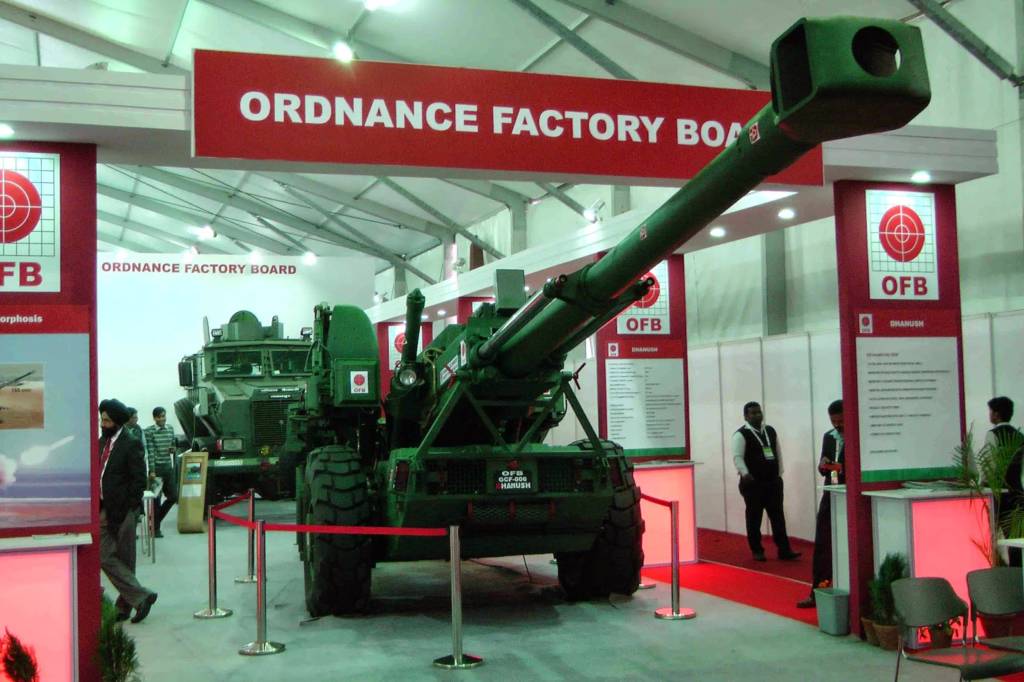In the latest effort to sideline inefficient Ordnance Factories and promote private players in defence manufacturing, the government has placed the order for 10 lakh hand grenades with private companies. The contract to supply 10 lakh hand grenades over the next two years has been awarded to Nagpur based Economic Explosives Limited (EEL).
The company would supply multi-mode hand grenades (MMHG), a make-over from World War II time designed hand grenades that the Indian army was using so far. The 400 crore contract has not been awarded to Ordnance factory, the traditional supplier of small arms and ammunition to Indian armed forces. These grenades have been designed at the Terminal Ballistics Research Laboratory of the DRDO, but, the contract for manufacturing was awarded to a private company, given the Himalayan inefficiencies of OFB, the public sector supplier.
Indian Army, in its internal assessment, has found that poor quality defence equipment supplied by Ordnance Factories Board (OFB), has led to 27 deaths and loss of 960 crore rupees to the government since 2014. OFB, a government-owned production unit, is known for its inefficiency and ‘Communist’ work culture. Its inefficient equipment has led to the loss of soldiers as well as money to Indian armed forces.
Headquartered in Kolkata, OFB is said to be among the oldest and most inefficient organizations in the world. A white elephant of the Nehruvian economy, it employs more than 80,000 people in 41 ordnance factories, 13 ordnance R&D centres, and nine ordnance institutes of learning. A few months ago the government decided to corporatize the OFB to make the institution more efficient, but, the employees of Ordnance Factories have called for an indefinite strike from October 12 against the decision.
However, amid the typical Communist nature protest threat from the lethargic OFB employees, the government has already started to sideline the inefficient institution and, is prioritizing the private players to Public-Private Partnership (PPP). “The MMHG case showcases how private-public partnership can deliver results very successfully for the vital defence sector in just a few years. It is for the first time in India that a privately owned company would be getting to supply an order for complete ammunition,” a senior EEL executive said.
Previously a few months ago, the Ministry of Home Affairs has held a discussion with 17 private companies to locally manufacture the small arms used by Central Armed Police Forces (CAPF), which were earlier imported from foreign arms manufacturers. The 17 companies which were party to the discussion included Vem Technologies, Kalyani Strategic, Shyam Arms, Premier Explosives, HYT, L & T, and Godrej.
India’s defence manufacturing is still in the nascent stage, thanks to the monopoly of the public sector. The post-independence government restricted entry of private players in the strategic sector like defence equipment manufacturing, and the meagre resources were put to white elephant companies like HAL and OFB.
The public sector companies like HAL and Ordnance factory Board could not get any breakthrough in seven decades of its existence, and the country continued to import defence equipment from private manufacturers in countries like the United States, France, and the United Kingdom. All India public sector companies have been able to achieve is to manufacture less skill-intensive and tech-intensive equipment for the Indian aviation sector by technology transfer from the Soviet Union.
For knowing inefficiencies of OFB and HAL, read the following:
The interesting fact here is that most foreign manufacturers from whom the Indian public sector manufacturer like HAL gets contracts to manufacture weapons for domestic use on behalf of the Indian government are private companies. Not a single defence manufacturer in the top 25 in the world is a public sector unit because no company could manufacture the best weapons until there is cut-throat free-market competition. HAL, despite years of monopoly in India’s defence sector, could not take place in the world’s top 25 companies.
Today, India is one of the largest arms importers of the world. India has to import all defence equipments ranging from fighter aircraft to guns because the HAL and DRDO are too incompetent to manufacture even small arms.
Five largest defence contractors in the world- Lockheed Martin, The Boeing Company, BAE Systems plc, The Raytheon Company, and Northrop Grumman Corporation are Western private sector companies. The involvement of private players would make India self-dependent in the defence sector in the next few decades, and the government would not be forced to spend foreign exchange to buy the weapons which our armed forces use.
The involvement of private players would not only make the country self-dependent but also improve the efficiency and quality of the weapons. If the private players succeed in developing good weapons in the next few years, even state police forces could get rid of the substandard guns and ammunition manufactured by public sector players like Ordnance Factory Board and HAL.
